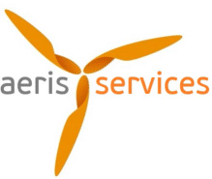Employers, get ready for upcoming challenges in classifying workers as independent contractors due to significant changes by the U.S. Department of Labor (DOL). The Biden administration has officially revoked a rule that eased the classification of workers under federal wage and hour rules. Instead, businesses will now have to adhere to a previous standard for classification of independent contractors, potentially resulting in more workers being categorized as employees.
Why the new rule matters to your business before it takes effect on March 11.
- New Rule Puts Businesses at a Disadvantage
Prepare for a more intricate analysis of worker classification based on the “totality of the circumstances.” The new rule adopts an employee-friendly interpretation, likely leading to increased employee classifications. Under the previous rule, control over work and the opportunity for profit or loss were crucial, but the new rule changes the game and poses challenges for businesses relying on contractors.
- Totality Test to Increase Employee Classifications
The soon-to-be-scrapped rule focused on control and profit or loss as core factors. The new rule reintroduces a “totality-of-the-circumstances analysis,” considering six factors without predetermined weights. These 6 factors include:
- worker’s opportunity for profit or loss depending on managerial skill
- investment comparison made by worker vs. those of employer
- permanency of the relationship
- nature and degree of control by the employer
- level of integration of work into the employer’s business
- use of specialized skills by the worker
Also, the new rule states that “additional factors may also be considered if they are relevant to the overall question of economic dependence.”
- State Rules Remain Relevant
Note that the DOL’s test applies only to the Fair Labor Standards Act (FLSA), and various states have their own tests for wage and hour claims. While some states such as Arizona have laws protecting the independent contractor relationship if certain criteria are met, some states, like California, Illinois, New Jersey, and Massachusetts, apply a stringent “ABC test,” making it challenging for businesses to establish independent contractor relationships. Additionally, different federal agencies like the National Labor Relations Board may use tests distinct from the DOL for FLSA cases.
- Increased Liability Risk for Employers
Prepare for increased liability risk as the new rule may lead to misclassifications, exposing businesses to potential legal consequences. Federal wage and hour law entitles employees to certain benefits, which independent contractors may not receive. With the new rule, businesses face higher risks of class-action lawsuits, settlement demands, backpay, damages, interest, penalties, and legal fees.
What You Should Do: Actions to Take in New Independent Contractor Classification Rule by DOL
As a business relying on independent contractors, you face a significant risk of having your classification challenged by the DOL or private litigation. It’s crucial for you to proactively take steps to mitigate the risk of misclassification. This can be impactful to your business and at the same time, overwhelming to ensure compliance. Achilles Group provides HR services to mitigate your risk, and the following actions need to be included in your overall strategy to address the new implications:
- Conduct audits to assess misclassification risk.
- Consider changes to worker classifications based on the new rule.
- Update policies and procedures to align with the DOL’s final rule.
- Train managers on navigating independent contractor relationships.
- Seek a trusted HR advisor like Achilles Group to evaluate programs and minimize risks before the rule takes effect.
While business groups may challenge the new rule, be prepared for the upcoming changes, especially if you operate in states following the stringent ABC test.
We will keep a close eye on these developments and offer updates as necessary, so ensure you are subscribed to Achilles Group’s Insights to receive the latest information directly in your inbox. If you have compliance questions, seek guidance from your Achilles Group consultant.














































